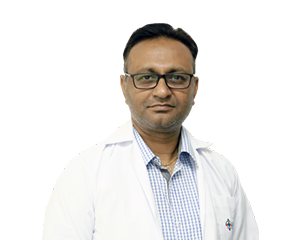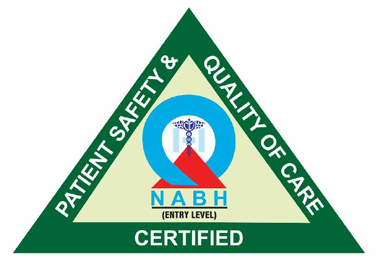Anaesthesia is a vital part of the medical profession, specifically for anaesthesia surgery. Anaesthesiologists alleviate pain and discomfort during surgical operations and ensure that the patient has a pleasant experience. Anaesthesia specialists are present in the patient’s experience before, during, and after the procedure.
The Department of Anaesthesia at Asian Patna hospital is home to some of the finest anaesthesia professionals in Patna. They employ their substantial medical knowledge in the operating room to keep patient comfort at the forefront. The anaesthetic professionals also guarantee that the patients fully grasp the consequences of anaesthesia on their bodies through active conversation.
The anaesthesia department provides specialist care for all surgical specialities, including:
- Oncology
- General Surgery
- ENT
- Plastic Surgery
- Renal Transplant and Surgery
- Neurosurgery
- Paediatrics
- Gynaecology and Obstetrics
- Neonatal Care
Because of our anaesthesiologists’ exceptional capacity to recognise and diagnose pain as the fifth vital sign in surgery, specialists follow it for all surgical procedures. Furthermore, they prioritise acute and long-term pain management to guarantee that patients are completely comfortable during treatment sessions.
What is the duty of an Anaesthesia specialist?
An anaesthesiologist is present during your surgical procedure, both inside and outside of the operating room. As a result, anaesthesiologists from the department of surgery hospital in Patna will collaborate with you at three stages: before, during, and after surgery.
Anaesthesiologists’ role – before the surgery:
- Recognise your allergies
- Find out about any medications or supplements you’re using
- Talk about your upcoming procedure
- Plan the anaesthetic procedure
- Respond to your inquiries
Once they thoroughly understand your medical history and background, they will take the essential precautions to keep you safe throughout the surgery. The following stage is comprised of this.
Anaesthesiologists’ role – during the surgery:
- Sedate you to relieve stress
- Give you something to put you to sleep and to relieve your pain
- Throughout the procedure, monitor your breathing, heart rate, blood pressure, and other vitals
- Assists in adjusting your anaesthetic level, if needed
Anaesthesiologists’ role – after the surgery:
The anesthesiologist is still in charge of the patient’s overall care after the procedure. They will neutralise the anaesthetic effects and continue examining and comforting the patient as they recover. Throughout this procedure, the anesthesiologist will direct other medical personnel, including specialist nurses.
As an anaesthetic side effect, some people feel nausea and chills. Your anesthesiologist will prescribe medication to reduce these side effects so that you can heal in perfect comfort under our care.
What are the services offered for anaesthesia surgery?
AIMS Patna’s anesthesiologists are experts in a wide range of pain management techniques. Not every operation necessitates putting you to sleep. Because of the variety of treatments provided at the hospital, our skilled anesthesiologists must be adept in various services to make your experience as comfortable as possible.
Anaesthesia surgery is more comfortable and safer. However, the more effective the anaesthetic, the greater the likelihood of adverse effects. The Asian Patna’s skilled anaesthetic specialists understand the complexities of each procedure and, as a result, provide appropriate care.
The department’s professionals provide the following types of anaesthesia:
General Anaesthesia: Putting you to sleep during surgery, such as TKP and heart surgery. This is typically administered intravenously, for example, through an IV.
Local Anaesthesia: Sedating a small section where the surgery will be performed, such as when removing skin cancer. This is commonly administered as a cream, gel, or injection. You will be awake, but you will not be in discomfort.
Nerve Blocking: An injection used to alleviate back pain or other area-specific persistent pain caused by medical illnesses or traumas.
Regional Anaesthesia: Numbing the specific area of your body where surgery is being performed, including such surgery on just one arm or leg.
Sedation: This relaxes you before and throughout your procedure, with effects ranging from mild tiredness to full sleep.
All individuals require different doses of an anaesthetic; children and adults cannot be sedated the same way. Anaesthesiologists at Asian Patna Hospital take such things into account before administering anaesthesia to ensure patients enjoy the greatest experience possible.
Why choose our anaesthetic specialists for anaesthesia surgery?
The hospital’s highly qualified and skilled anaesthesiologists prioritise patient and patient satisfaction. They uphold AIMS’s beliefs and use cutting-edge medical technology to provide great healthcare quality.
Patients in the Department of Anaesthesiology can be benefited from the following facilities:
- Advanced patient monitoring technology
- Extensive knowledge through conducting 20-25 operations daily
- Interdisciplinary understanding of anaesthesia surgery
- 7 Consultants
- Expert senior residents
- 10 State-of-the-Art operation theatres
- Modern anaesthesia equipment
Our Anaesthetic specialists use their medical knowledge to perform their crucial responsibility in the operating room, which is to assure the patient’s comfort during surgery and educate about the medical decisions to protect the patient.
The experts at Asian Patna are always prepared for everything, whether you require general anaesthesia for an endoscopy or regional anaesthetic for a broken wrist! Our skilled doctors guarantee holistic care facilities equipped with cutting-edge technology for a completely pleasant experience before, during, and after your surgery.
If you’re looking for a surgery hospital in Patna, contact us today for a smooth surgical experience with our Patna anaesthesiologists!











